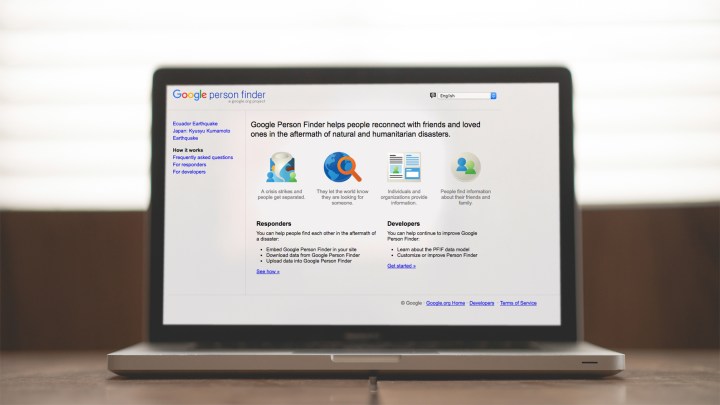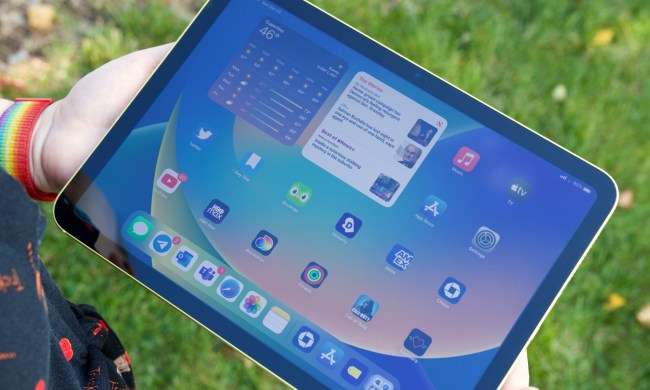
Google, for its part, has deployed Person Finder, an open source registry and message board that allows non-profit organizations, authorities, and individuals update the status of people reported missing. It’s a tool Google has activated in the past — it was developed in response to the 2010 Haiti earthquake, in fact. And it’s been used to great effect: it helped track the movements of more than 616,000 people following the Tōhoku earthquake and tsunami in 2011, and 77,1000 in the aftermath of the 2010 Chile earthquake. This time around, Person Finder’s been made available in Spanish and Japanese to support the efforts underway in Ecuador and Japan.
Alongside People Finder, Google’s pushing a new missing persons card to Google users that’ll reflect up-to-the-minute resources. Users in and around the affected areas, meanwhile, will get cards showing information about about safety zones and aftershocks. Google’s also making phone calls to the regions free via Hangouts, Hangouts Dialer, and Google voice, and it’s publishing crisis maps for earthquake victims. In Japan, the company has launched a dedicated Web portal with a database of “accessible roads and places where people can get disaster resources.” And in Ecuador, it has updated navigation app Waze with “more than 90 safe place locations.”
Independent of its technological deployments, Google has committed a $250,000 donation to recovery volunteers in Japan and Ecuador. In the same vein, Verizon has introduced a way for wireless subscribers to easily donate to humanitarian organizations in the form of a charge on top of their monthly bill. Texting RELIEF to 864233 will designate $10 to UNICEF’s efforts in Ecuador, while texting JAPAN to 80100 will set aside the same amount for Global Giving’s relief program in Japan.
Verizon, falling in step with AT&T, T-Mobile, and Sprint, waived fees on U.S. mobile and landline customers who call and/or text cellphone users in Japan earlier this week — from April 14 to April 18. It offered much the same deal in Ecuador: from April 16 to April 18, subscribers could place calls and send and receive texts from impacted cities.


